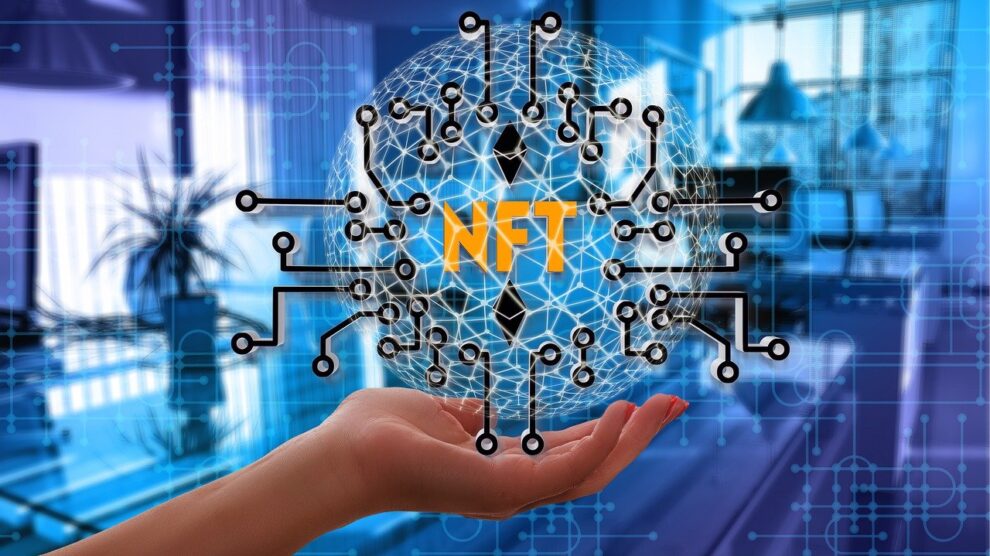What are Non-Fungible Tokens (NFTs)?
Non-fungible tokens (NFTs) are a type of digital asset that are unique and cannot be interchangeable with any other token. This makes them different from traditional, fungible cryptocurrencies like Bitcoin and Ethereum, which can be divided and traded in smaller quantities without affecting their value. NFT Profit is one of the favorite platforms that is helping their users to gain profit.
Because each NFT is unique, it can be used to represent different assets or rights. For example, one NFT might be used to represent a specific piece of artwork, while another could be assigned to a particular ownership stake in a company. NFTs can also be used to store data or create digital scarcity, which is when a limited number of tokens are created to represent a unique asset.
NFTs are still a relatively new concept, and there is no standardized way to use them yet. However, they are starting to be used in a variety of different ways, including online games, digital art galleries, and cryptocurrency exchanges.
How Do NFTs Work?
Non-Fungible Tokens (NFTs) are digital assets that are unique and cannot be replaced by another asset of the same type. This is in contrast to traditional fungible tokens, such as Bitcoin and Ethereum, which can be replaced by another unit of the same type.
NFTs are created on blockchain platforms that use special protocols to ensure the uniqueness of each token. These platforms often include built-in scarcity mechanisms to prevent the over-creation of NFTs.
One of the most popular applications for NFTs is digital collectibles. These are digital assets that represent rare or unique physical objects. For example, a digital token might represent a specific comic book issue or a particular piece of art.
NFTs can also be used to represent ownership of digital assets. For example, a user might own a digital house that is represented by an NFT. This would allow the user to sell, rent, or otherwise use the house in a virtual world.
NFTs are still a relatively new technology and there are many potential applications for them that have yet to be explored. Expect to see more innovative uses for NFTs in the future!
Future of NFT
NFTs, or non-fungible tokens, are a new type of digital asset that is garnering a lot of attention in the blockchain space. They are unique in that every individual token is different, making them perfect for representing unique items like collectibles or digital scarce assets.
While there is no doubt that NFTs have a lot of potential, there are still some questions about their future. For example, will there be a good way to use them for exchanging value? And will they be able to scale to meet the needs of mainstream users?
Only time will tell how successful NFTs will be, but they definitely have the potential to revolutionize the world of digital assets. So far, they have been used to create a wide variety of interesting projects, and there is no doubt that this trend will continue in the future. So if you’re interested in blockchain technology, be sure to keep an eye on NFTs!
Benefits of Investing in NFTs
There are many benefits of investing in NFTs. Some of the key benefits include:
1. Increased liquidity: One of the key benefits of NFTs is that they offer increased liquidity. This means that they can be traded more easily and at a lower cost than traditional assets. This makes them an attractive investment option for those who want to maximize their returns.
2. Diversification: Another key benefit of NFTs is that they can help to diversify your portfolio. This is because they are not tied to any one asset class and can offer exposure to a range of different markets. This makes them an attractive investment option for those who want to spread their risk.
3. Increased security: NFTs are also more secure than traditional assets. This is because they are stored on a blockchain, which makes them much harder to hack or steal. This makes them an attractive investment option for those who want to ensure the security of their funds.
4. Increased transparency: NFTs are also more transparent than traditional assets. This is because all transactions are recorded on the blockchain, which makes them easy to track. This makes them an attractive investment option for those who want to ensure that their funds are being used in a responsible manner.
5. Fast and easy transactions: Finally, NFTs offer fast and easy transactions. This means that you can buy and sell them quickly and easily, without having to go through any intermediaries. This makes them an attractive investment option for those who want to get in and out of investments quickly and easily.





